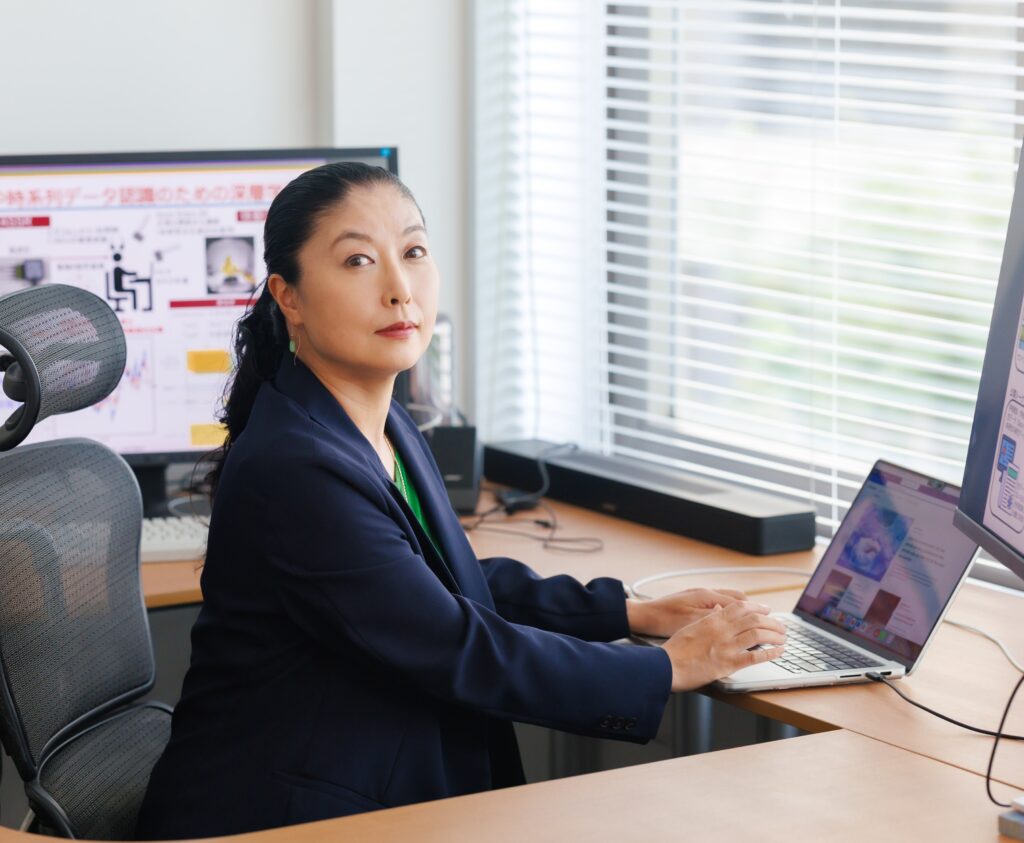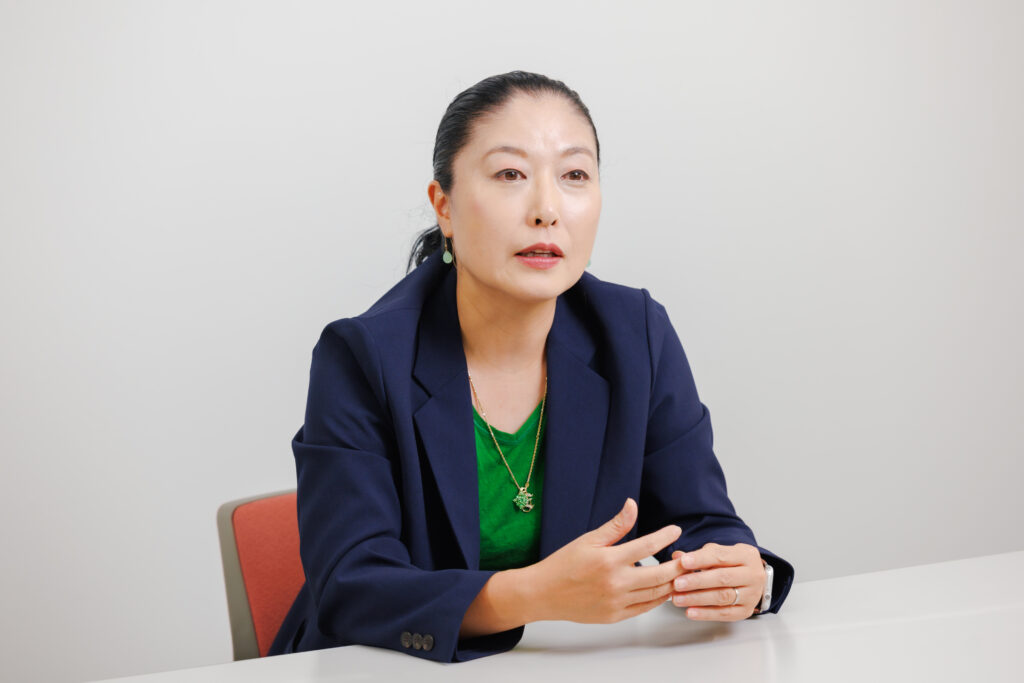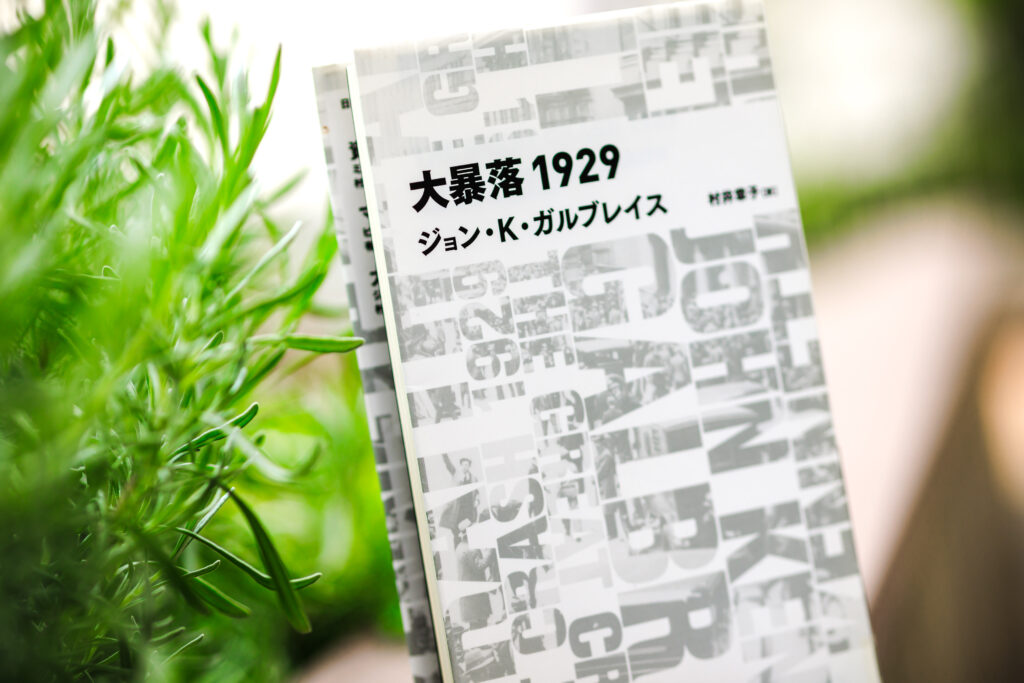
Professor Ikuko Yairi from the Faculty of Science and Technology specializes in intelligent informatics. Applying machine learning algorithms to complex system data analysis, such as in brain information decoding and environmental metagenomes, she undertakes interesting and useful research that carves out the future of information and communication.
I use machine learning algorithms to analyze the data of complex systems—such as the human body and ecosystems—where several factors interact with each other. Such research is unique, even within computer science, as it intentionally deals with data that is difficult to handle, with lots of noise and significant variation between individuals and locations.
My current research themes span a wide scope. They include recognition of various emotions using brain waves; metagenome analysis of the DNA of bacteria found in river surface water and bog soil; automated designing technologies that use reinforcement learning; and optical communications in space.
The progress in communication technology has enabled the collection of enormous amounts of text and image data. In fields that process natural languages and images, there are many deep learning models that can achieve recognition with greater accuracy than humans. In contrast, for data of complex systems such as brain waves and metagenomes, the cost of data collection is huge, and there is little advancement in the organization of large-scale data and application of deep learning models.
There are very few researchers who undertake brain wave experiments and environmental microbial DNA collection for the purpose of implementing deep learning models. It is a series of trial and error, day after day, but I feel that such research is interesting and satisfying because it is difficult.
Connecting the dots to predict hidden phenomena

The charm of computer science is the freedom in ideas for exploring new possibilities from totally different perspectives, while respecting the research approach of experts in natural science in terms of explaining facts. For example, in metagenome research, the aim of biological research is to make clear the fact of changes in microbial species using data collected upstream and downstream of a river.
Meanwhile, in computer science, we connect several facts to deduce the things taking place at a particular location, and we can also undertake research themes that seek to unravel these mysteries using statistical processing such as algorithms and simulations. I also feel that a research approach that turns points into lines and lines into planes, by linking to data from other rivers and extending into time series, is very full of creativity.
Even within machine learning algorithms, deep learning has the potential for application in a wide range of fields in society. An understanding of people’s preferences and emotions from brain waves can see potential use in marketing, and an understanding of the health and peculiarities of soil and water from metagenomes can be applied to agriculture and environmental rejuvenation.
Going forward, I hope to continue to undertake distinctive research activities, such as predicting the attenuation of laser in the atmosphere to build an optimization model for networks between space and earth.
A desire to contribute to the fusion of computer science and communication technologies
We achieved a breakthrough in artificial intelligence (AI) by connecting all kinds of things together with each other using communications. Currently, development of communication technologies using AI is also making progress. AI cannot evolve without communication technologies, and it is also not possible for communication technologies and their wide application fields to advance without AI.
I participate as a member of government committees and such related to communications. Communication technologies and AI will continue to develop together in the future, and I look forward to seeing interesting things happen one after another from their synergy.
In 20 to 30 years’ time, devices that allow anyone to easily measure brain waves may be used in daily lives, big data analysis of microbial DNA in the environment and within living things may become common technology, and various services—such as health, agriculture, and environmental protection—may become implemented as communication applications.
In a society where everything is connected by communication, how do we handle data and give birth to values and services that are useful to society? The fusion of computer science and communication technologies is essential for answering this question. I hope to serve as a bridge between the two fields and continue undertaking research that paves the way for others.
The book I recommend
“The Great Crash, 1929”
by John Kenneth Galbraith, Japanese translation by Akiko Murai, Nikkei Business Publications

The photo shows the 2008 Japanese translation of “The Great Crash, 1929” (published in 1955). When I was a student, I read an older Japanese translation at the library, and reading this new version after the bankruptcy of Lehman Brothers struck me deeply again. I reaffirmed my sense of mission to prevent and avert economic crises through progress in information and communication technologies.
-
Ikuko Yairi
- Professor
Department of Information and Communication Sciences
Faculty of Science and Technology
- Professor
-
Graduated from the Department of Mechanical Engineering Faculty of Engineering, the University of Tokyo, and received her Ph.D. in Mechanical Engineering, after completing both the master’s and doctoral programs of the Department of Mechanical Engineering under the university’s Graduate School of Engineering. Took on several positions—such as working at the National Institute of Information and Communications Technology and associate professor at the Faculty of Science and Technology, Sophia University—before assuming her current position in 2023. Previously served as a director of the Japanese Society for Artificial Intelligence.
- Department of Information and Communication Sciences
Interviewed: August 2023